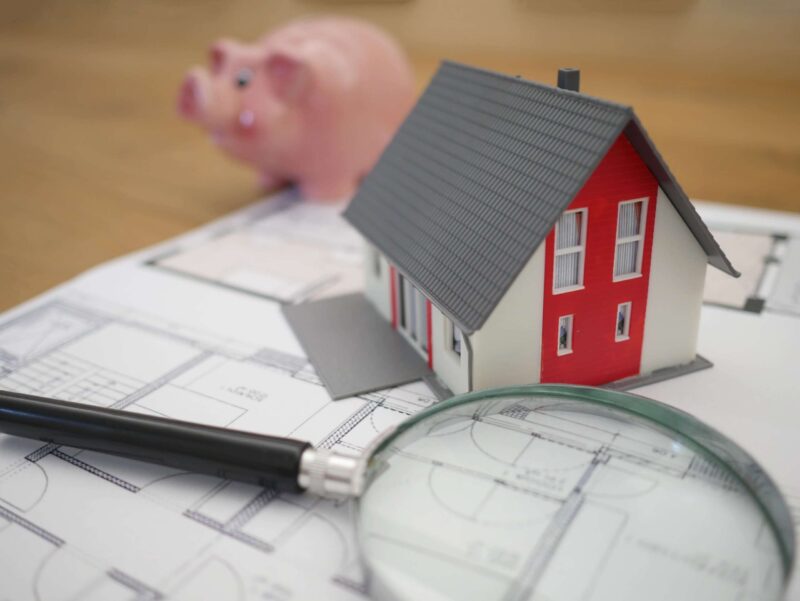House Surveys: Do you really need one?
Buying a house is really expensive, so is the additional expense of a survey really necessary?
Whether you’re a First Time Buyer or a seasoned homeowner seeking a buy-to-let, buying a new house is an exciting time — if also a little daunting.
Home Emergency Insurance for £130
- ✓ Covered up to £1,000 per emergency
- ✓ £250 for overnight accomodation
- ✓ Call out, labour & parts included
The last few years have been a whirlwind for the property market, as the stamp duty holiday encouraged many to move sooner than they had originally planned. Now, new data shows the UK housing market has started to slow down after prices hit a new record for six months in a row, but are unlikely to slow down as much as originally predicted.
If you are about to start looking for a property, or you’ve already got the ball rolling, you’ll be considering all of the additional costs of buying. As well as the barrage of solicitor letters, estate agent phone calls and legal documents you have to deal with (and pay for!), you’ll also have to decide whether or not to have a house survey done.
What is a house survey?
In England and Wales, a survey is usually carried out after a buyer’s offer has been accepted by the seller. However, in Scotland, the seller must provide the buyer with a house report on their property.
A house survey can take anywhere between an hour and a full day to carry out, depending on the level you choose and the size, age and condition of the property you’re buying.
The surveyor should be a member of one of the following two accredited bodies:

RICS provides three different levels of survey, while RPSA offers two. Which survey you need depends on how old the property is that you’re buying and what condition it’s in:
- RICS Home Survey Level 1
This is the most basic survey you can have. It gives an overview of the property’s condition and flags significant issues, rather than going into any detail.
If the property is less than 10 years old, in good condition, and a modern, standard house, you might choose level 1 in order to confirm that all appears well.
- RPSA Home Condition Survey and RICS Home Survey Level 2
This level of survey is commonly used for properties that are in reasonable condition. It covers everything in level 1, as well as highlighting any repairs and ongoing maintenance required and anything that could affect the property’s value.
It will also flag anything that doesn’t meet current building regulations and things like damp or subsidence. Bear in mind that only surface-level issues will be identified — i.e. things that can be seen without looking under floorboards or behind furniture.
- RPSA Building Survey and RICS Home Survey Level 3
This is the most comprehensive survey, making it longer to carry out and the most expensive, but it will provide you with a lot more information about the property.
It is especially wise to opt for this thorough survey if the property is older, in particularly poor condition or unusual in any way. It covers everything in levels 1 and 2, and the surveyor will be more hands-on in terms of looking under floorboards, in the attic etc.
For any issues raised in the report, the surveyor will be able to include estimated costs and timescales for repair work too.
Do I really need a house survey done before I buy?
Buying a property is expensive and you might be tempted to skip having a house survey done, especially as the cost-of-living squeeze continues to drag on.
However, not having a house survey may come back to bite you, if you discover a problem that could have been flagged before you went through with the sale.
A survey gives you expert insight on the property and enables you to make an informed decision about whether you want to go ahead with the purchase or, if problems highlighted will lead to significant repair costs, re-negotiate the sale price.
Don’t get a survey confused with a mortgage valuation, which is sometimes called a mortgage survey. This is carried out by your mortgage provider to check that the property is worth what you’re planning to pay for it.
However, a valuation doesn’t always involve someone visiting the property to assess it and doesn’t provide the same level of information that a house survey will. Therefore, you should arrange your own house survey independently.
What can a house survey tell me?
Do your homework before choosing a surveyor so that you know exactly what will and won’t be inspected before you pay them to visit the property.
As a guide, RICS states that its surveyors aim to give buyers expert advice about:
- General condition. This is an overview of the property and its construction
- Defects. This will advise on any serious defects that require attention
- Further investigation. This will highlight things you should look into before they cause serious damage to the fabric of the building
- Safety risks. These are serious defects or issues that could pose a safety risk
The survey will also look at the following:
- The outside of the property. This will cover the roof, chimney and other surfaces on the outside of the building from ground level only
- Surfaces. Where there is access, the survey will look at the surfaces of exposed floors and under-floor spaces
- Inside and outside. It will cover both inside and outside, as well as any permanent outbuildings that are sold as part of the plot
- Services. The survey will look at the electricity, gas/oil, water, heating and drainage services where they can be seen. However, none of these will be tested, so you will need further investigation if you want to know more about these services
Your survey report will also flag any parts of the property that could not be checked for any reason, that would normally be assessed as part of a survey. If the surveyor has any concerns about these, they will indicate that further investigation is needed.

Do I need a survey if I’m buying a new build?
A snagging report will highlight problems inside the new property, including cosmetic issues such as cracks in freshly painted walls and even plug sockets that don’t work. Some surveyors who carry out snagging reports will also look outside for any structural or construction problems too, such as chipped bricks and ineffective guttering.
Speak with the surveyor before they attend so that everything you want to be looked at is checked. You can give the information identified in the snagging report to your builder or developer to get the issues fixed as soon as possible.
How much does a house survey cost?
How much your house survey will cost depends on a few variables, including:
- Property size and type
- Location
- Which surveyor you choose to employ
It’s worth getting a few quotes before you decide who to go with.
As a guide, a level 1 survey begins at around £500 for a property worth between £100,000 and £249,000, and the price increases to approximately £950 for a property worth £500,000 to £1 million.
For a level 2 survey, expect to pay between £500 and £1,000; for level 3, the cost is around £700 to £1,500.
Whatever you decide, make sure you do your homework and know exactly what you are buying before you exchange contracts. It really does pay to be informed, and by having a house survey done you are potentially saving yourself from any unpleasant surprises later on down the line.